
NCTSN Financing and Sustainability Survey Report
Provides the summary results of a 2016 NCTSN member survey about financial sustainability.
The policy resources below address research, education, and training, and include products and materials developed by the NCTSN.

Provides the summary results of a 2016 NCTSN member survey about financial sustainability.
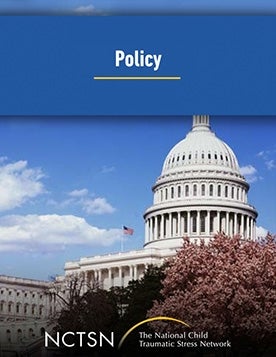
Explores policy challenges and lessons learned in promoting and supporting trauma-informed schools.
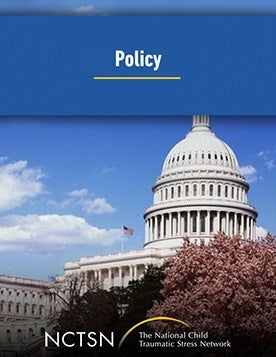
Provides an overview of several national policy challenges and solutions in the area of trauma and substance use.

Highlights two examples of state-based child trauma policy innovations. This webinar discuses the many states playing a leadership role in enacting and implementing policies to support trauma-informed services for children and families.

Features leading child and adolescent experts speaking about their recommendations for effectively addressing policy challenges in implementing integrated care.
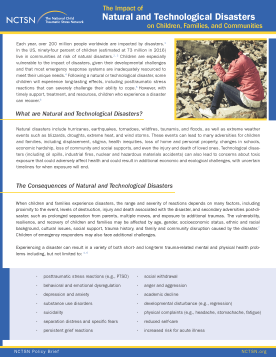
Provides information to policymakers about the impact of natural and technological disasters on children, families, and communities.
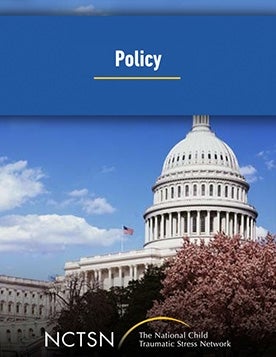
Addresses several local, state, and federal policy issues. This webinar series includes presentations from key policy experts, NCTSN members, affiliates, and partners who have played a leadership role in child trauma policy efforts.
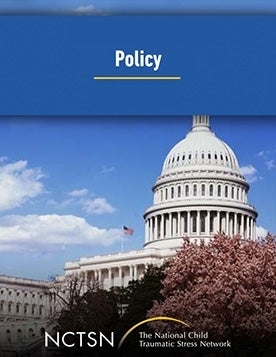
Guides participants in understanding the Defending Childhood Initiative and its policy implications for the child trauma field.
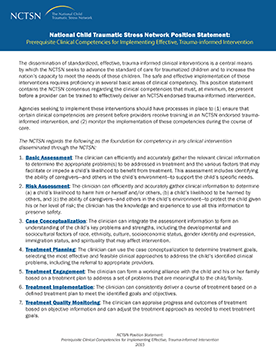
Guides agency leaders, clinicians, trainers, and others in optimizing service provision to children and families affected by trauma.
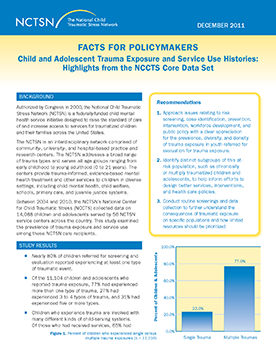
Describes the prevalence of trauma exposure and service use among NCTSN children in the Core Data Set and offers the study's results, recommendations, and policy implications.
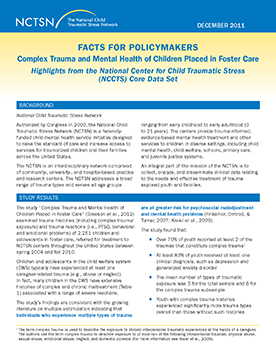
Describes the complex trauma and mental health of children placed in foster care among NCTSN care recipients as well as policy recommendations.
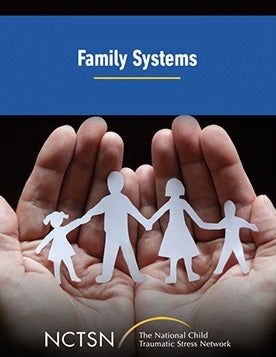
Discusses important policy issues related to the delivery of trauma-informed evidence-based care to children and families affected by traumatic events.